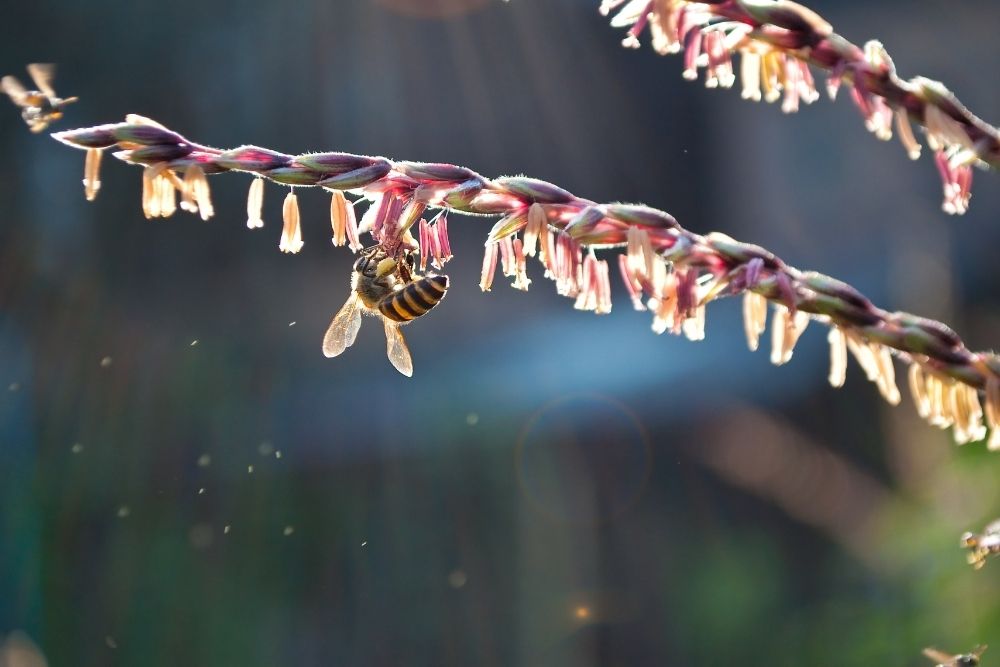The backstory: The Center for Food Safety and Center for Biological Diversity sued EPA for reapproving the insecticide in 2019 without checking the Endangered Species Act box with a review.
EPA said touché. They pinky promised to conduct the risk assessment while the product was on the market.
Fool me once…fool me twice… In 2013, EPA’s registration of sulfoxaflor was canceled by the same court because they didn’t turn in their homework on the insecticide’s impact on bees.
What about ‘em anyway? The short and sweet is the bee industry contributes to national food security.
- Commercial production of more than 90 crops relies on bee pollination.
- Honey bees’ work as crop pollinators is estimated to be 10-20 times the total value of honey and beeswax.
- Bee pollination accounts for about $15 billion in added crop value.
But climate change could smoke them out.
Penn State researchers found that different weather patterns, namely temperature and precipitation, affected wild bee populations more than land-use. To the dismay of wild bees everywhere, these unfavorable weather conditions are only expected to increase.
Help is on the way. Cue UC Davis’s efforts to create a bee rescue squad.
With a three-year, $900,000 grant, a team from the university will lead a cross-disciplinary and multi-campus team to research different factors impacting pollinator health and create new solutions helping beekeepers better manage the health and survival of colonies.

